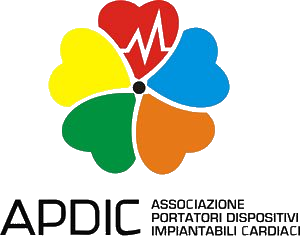The heart rhythm
Take care your heart
Learn more
Learn with us
The implantation of a CIED (pacemaker or ICD) is an important event in one’s life. However, this is an ongoing therapy aiming at the improvement of your quality and expectancy of life.
Psychological implications are absolutely normal in this condition, symptoms of anxiety and depression being the most commonly observed. Being distressed is very common and completely normal in such a situation: the truly important thing is to cope with it, and resume a fully enjoyable life.
Anxiety about the possibility of an evolving heart disease and about the device usually arises. The main intervention to blunt anxiety is a cognitive approach at understanding the underlying rhythm or heart disease and the CIED role in its management. This can usually restore confidence in the resumption of a full life. Your doctor and nurses are the best team to talk to about all these concerns before and after the CIED implantation. You may want to share your feelings with the staff personnel or your family to get reassured, but the support of someone-like-me, or meeting with other patients, may also be effective. Sharing a medical experience is a very individual one, so it is important for everyone to get answers and suggestions about living with a device and getting back to normal life.
The basic concept is that some attention needs to be paid to physical activities in the early post-implantation phase to avoid lead dislodgement, then physical activity can be resumed according to your physician’s suggestions (see also Physical Activity).
Getting back to your job usually poses little restriction except for specific employers ( those doing heavy physical work, those working within very strong electromagnetic fields, and those who might be in danger in the event of a transient loss of consciousness while ICD therapy delivery is ongoing) who need to discuss job resumption with their physician (see also Electro-Magnetic Interferences).
Return to normality and wellbeing usually occurs within the 3rd month or even sooner , depending on the confidence that everyone builds up by getting back to normal activities.
Social life shouldn’t be disrupted because of the early hospitalization; indeed all the leisure activities can be resumed as quickly as possible ( see also Lifestyle).
It is extremely difficult to express facts and feelings about a medical illness or device therapy, and to decide when and whom to talk to about it. Beyond the family and the medical team, support groups and associations may also play a role.
Patients and their families may play a truly active part in the long term management of a chronic illness, and, as patient empowerment develops, they become reliable sources of information and treatment options to other patients.
For information about other support groups, visit also the following websites:
https://www.facebook.com/group.php?gid=338526512560
https://apacemaker.blogspot.com/
https://www.pacemakerclub.com/
